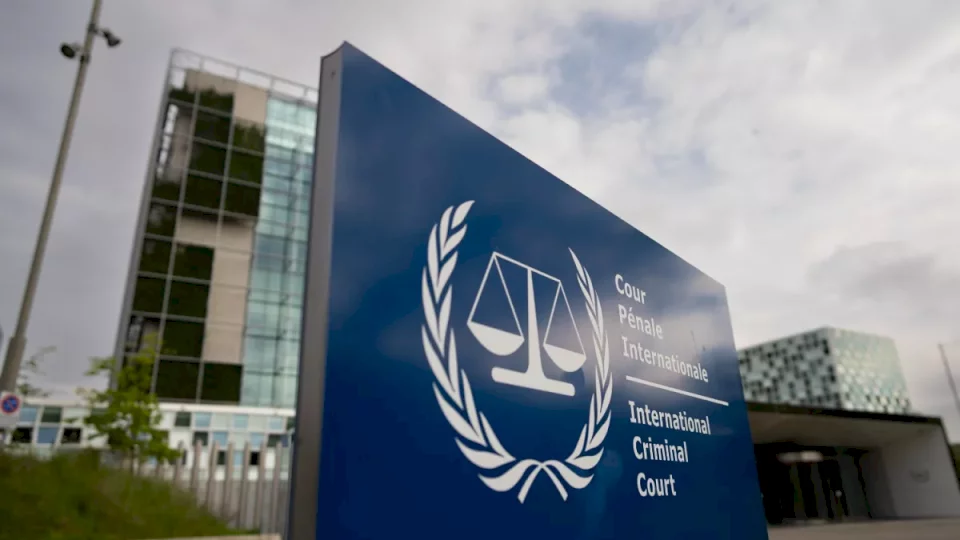
Trump Administration Escalates Its War on the International Criminal Court with New Sanctions
SadaNews - On Wednesday, the United States imposed sanctions on four high-ranking officials at the International Criminal Court, accusing them of leading "illegitimate" investigations into American and Israeli citizens. This marks a significant escalation in the long-standing dispute between the Trump administration and the court based in The Hague, as the U.S. administration has accused the court not only of overstepping its judicial boundaries but also of being a direct threat to U.S. national security.
Secretary of State Marco Rubio condemned what he called the "politicization of the International Criminal Court" in a statement released by the U.S. State Department, criticizing its "abuse of power," disregard for U.S. national sovereignty, and "illegitimate judicial overreach," urging states that support the ICC to abandon the "bankrupt institution."
A statement from the U.S. State Department specified the individuals subject to the sanctions, including ICC judges Kimberly Prost from Canada and Nicolas Guilhot from France, along with Deputy Prosecutors Nazhat Shameem Khan from Fiji and Mami Mandiaye Niang from Senegal, under Executive Order 14203, titled "Imposing Sanctions on the International Criminal Court," which was signed by President Donald Trump in February 2025. This order allows for the freezing of assets and restricting visas for foreign individuals involved in the ICC's efforts to investigate or prosecute Americans or their allies without their consent, based on similar actions during Trump's first term in 2020.
The sanctions center around the ICC's controversial investigations. Prost, a seasoned Canadian judge elected to the ICC in 2018, was targeted for her approval of the court's investigation into alleged U.S. war crimes in Afghanistan, including alleged abuses by U.S. forces.
Netanyahu Arrest
As for Guilhot, a French judge who joined the ICC in 2024 after serving in specialized Kosovo courts, he chaired a preliminary chamber that greenlit the issuance of arrest warrants against Israeli Prime Minister Benjamin Netanyahu and former Defense Minister Yoav Gallant regarding war crimes perpetrated by the Israeli government in Gaza. Khan and Niang, deputy prosecutors at the ICC since 2022, were targeted for supporting these measures against Israel, including amidst the broader scrutiny the court is conducting on the Israeli-Palestinian situation.
These warrants, sought by the ICC’s Prosecutor Karim Khan in May 2025 before his temporary resignation, sparked international controversy over accountability for alleged war crimes in Gaza. The U.S. has never ratified the Rome Statute, which established the ICC in 2002, considering it a threat to its foreign policy independence.
The historical tensions date back to the Bush administration, when Congress passed the "Hague Invasion Act" allowing the use of military force to free detained Americans. During Trump's first administration, similar sanctions targeted ICC Prosecutor Fatou Bensouda and a senior aide regarding investigations related to Afghanistan, before being revoked by President Joe Biden in 2021 amidst an improvement in relations. Biden's support for the ICC in cases relating to Ukraine highlighted selective U.S. participation, but the court's focus on Israel—America's closest ally—has ignited anger among both parties.
The imposition of sanctions aligns with Trump's "America First" principle, which prioritizes sovereignty over global standards and resonates with his popular base amidst ongoing political battles. However, analysts say this action risks further isolating the U.S. as allies question Washington's commitment to the rules-based order it helped establish after World War II. Some analysts argue that the sanctions could prompt calls for reforms within the court or countermeasures, testing the court's ability to withstand the pressures from great powers.

Ministry of Foreign Affairs and Expatriates: We are monitoring the targeted campaign again...

American Military Review in the Arabian Sea After Muscat Talks: "Peace Through Strength"

America Accuses China of Conducting Secret Nuclear Tests

Report: Wafiq Safa, Head of Hezbollah's Coordination and liaison Unit Resigns

Report: Iran Accelerates Missile Facility Repairs Compared to Nuclear

Ending of Iran-U.S. Negotiations in Muscat and Agreement to Resume... Iraqi: Good and Limi...

What Does the Participation of a U.S. Military Leader in Iran Negotiations Mean?

